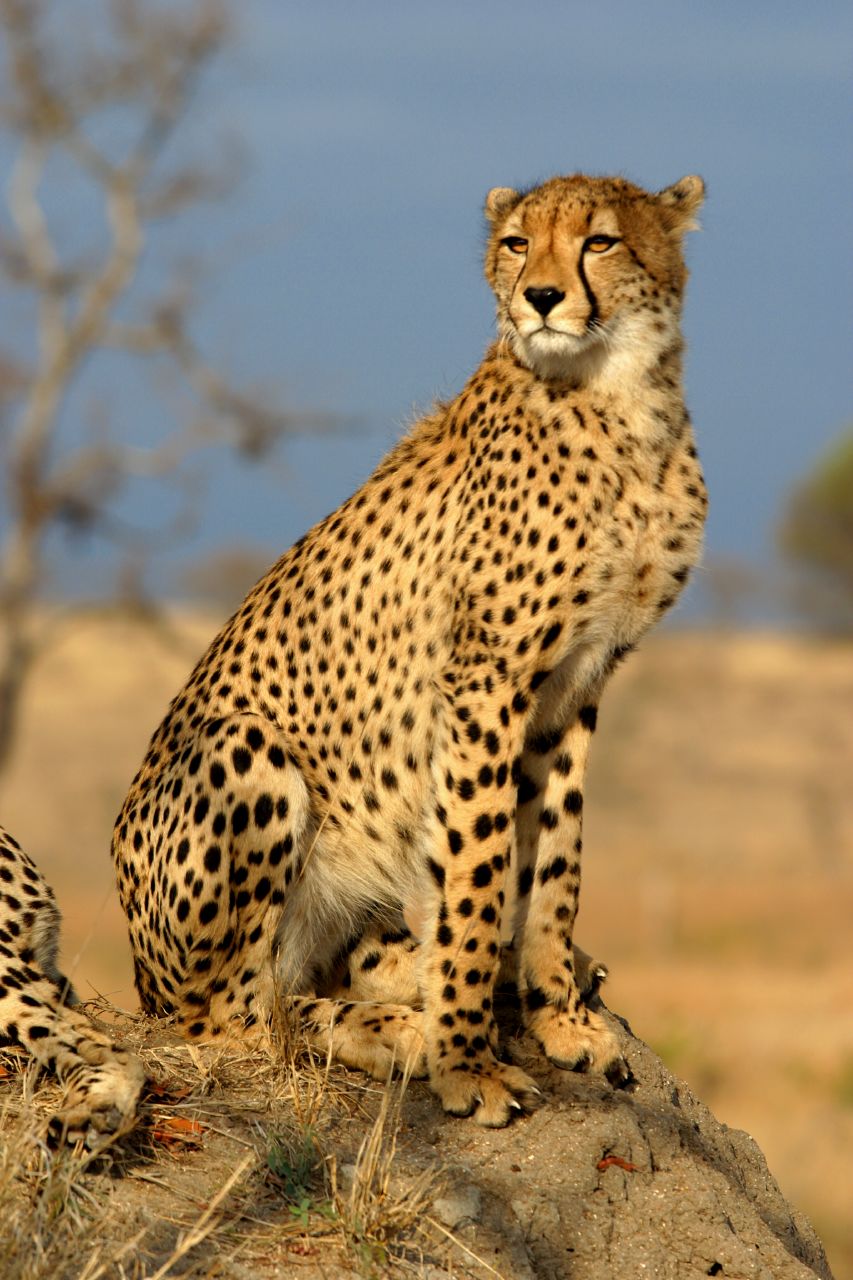They have been locally extinct since 1952. Now the spotted cheetahs are being reintroduced in MP's Kuno National Park.
A cheetah’s top speed is around 120 kilometres per hour. That makes them the fastest land animal in the world. And these cheetahs roamed freely across much of India till a few years ago. Central India has been home to Asiatic Cheetahs since the mid-16th century when Mughal Emperor Akbar brought some thousand cheetahs to India which he used as his hunting companions. Unfortunately, the tradition of royal hunting, or shikar, was one of the reasons for the species' rapid decline in India. Over the course of the next few years, most cheetahs were kept captive, resulting in further decline of population. By the mid-twentieth century, India's last few cheetahs were hunted. In 1951, a female cheetah was seen in the Koriya district of Chhattisgarh. This was the last spotted cheetah in India before they were declared regionally extinct by the government.

A cheetah spotted at the Sabi Sands Game Reserve in South Africa
Today, the Asiatic Cheetah remains critically endangered and a population of roughly 40 cheetahs lives in Iran. For decades, India has tried to bring Asiatic Cheetahs to the country but Iran declined by citing a low cheetah population, and the plan never took off.
In 2020, a petition filed by the National Tiger Conservation Authority (NTCA) in the Supreme Court of India was approved and the top court gave a nod to reintroduce the African Cheetah in India on an experimental basis. By June 2020, four sites in Madhya Pradesh - the Palpur-Kuno Wildlife Sanctuary, Nauradehi Forest Sanctuary, Gandhi Sagar Wildlife Sanctuary, and Madhav National Park were inspected to narrow down on the most conducive habitats for cheetahs.
Experts who inspected the sites included Wildlife Institute of India's Faculty of Wildlife Science Dean Dr Yadvendradev Jhala among others. Given the large grasslands of the Kuno-Palpur, this location was identified as the preferred location for the reintroduction of cheetahs in India. Experts say that the abundance of prey (including the chinkara, nilgai, four-horned antelopes, wild boar, and spotted deer) in the Konu National Park makes it ‘almost ready’ for cheetah reintroduction. The absence of trees and other obstacles will help cheetahs sustain high chasing speeds.
A total of 10 African Cheetahs, which includes five females, are being brought in from South Africa. The Madhya Pradesh state Forest Minister Vijay Shah said that the state has started the process of creating an enclosure for the cheetahs. Officials from India will be sent to South Africa for training purposes in the months of June and July and the cheetahs will be translocated in the following months of October and November. Similarly, experts from South Africa will visit India for site inspection. The NTCA will be soon releasing the money amounting to Rs. 1,400 lakh for this project.
Some experts argue that the reintroduction of cheetahs in India is not scientific. A petition claims it would be conflicting to prefer the exotic cheetah subspecies (African cheetahs) over the endemic cheetah subspecies (Asiatic cheetahs). Another argument says that Indian parks and habitats tend to be smaller compared to those in Africa. However, conservationists and the WII maintain that Madhya Pradesh has been home to the big cats in the past and that the habitat here is favourable for the cheetahs. Jhala also said that the state and central government’s political will along with the allocation of resources and funding will ensure that the cheetah translocation plan is successful.